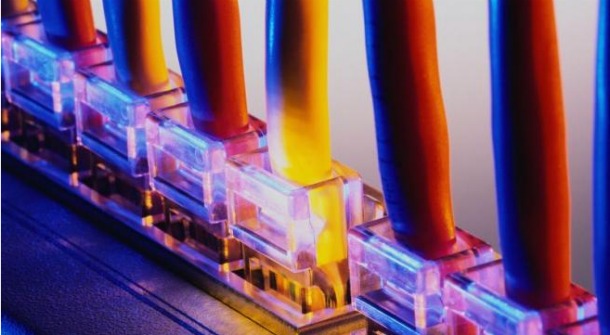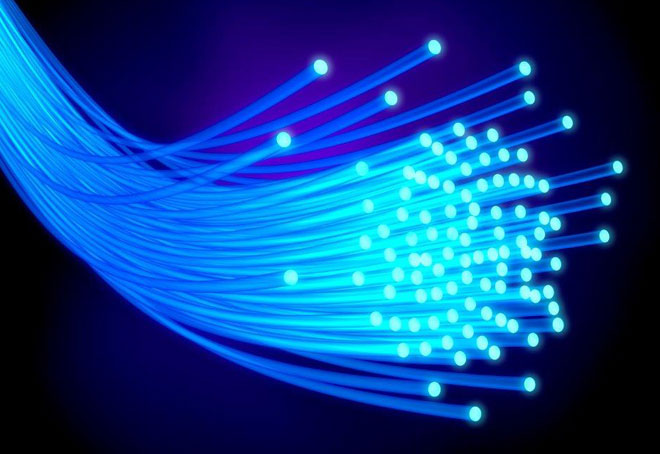32 US cities tackle telecom giants in high-speed internet revolution
- Details
- Written by admin

Thirty-two cities across the US are battling to break the chains of Telecom giant domination, with near-monopoly power and legal leverage leaving many municipalities stuck on the shoulder of the information superhighway.
Flying under the banner Next Century Cities, the bi-partisan effort hopes to ensure gigabit-fiber internet for their residents in order to revamp their towns for the 21st century.
The progressive initiative aims to help cities stuck in a DSL time warp navigate the legal and logistical challenges who would like to build fiber networks in their own backyards rather than be left in the lurch by telecom firms who have skimped on vital infrastructure investment.
On Monday, nearly three dozen cities spanning 19 states officially launched their campaign in Santa Monica, California, which already has gigabit level internet at its disposal.
“Across the country, city leaders are hungry to deploy high-speed internet to transform their communities and connect residents to better jobs, better healthcare, and better education for their children,” said Deb Socia, Executive Director of Next Century Cities. “These mayors are rolling up their sleeves and getting the job done."
The Tennessee Fire
Among those in attendance was Santa Monica Mayor Pam O’Connor, joined by other leaders from Boston, Portland, Lafayette and San Antonio. But perhaps Chattanooga, Tennessee, Mayor Andy Berke, whose city offers internet speed 50 times faster than the national average, stands at the heart of the ongoing movement.
Chattanooga has become a model for alternate paths of development in light of the proposed takeover of Time Warner Cable by Comcast, the United States’ second-largest and largest cable providers respectively. At that heart of that merger is net neutrality, which Comcast seeks to dismantle via the creation of internet fast lanes that would give premium access to those willing to pay, effectively killing the egalitarian nature of the web.
By making high-speed internet a municipal matter which would provide a detour to any two-tiered internet system, cities could ensure the democratic nature of the net regardless of whatever schemes private service providers attempt to enact.
It’s no surprise then, that in August, the US telecoms industry called on the Federal Communications Commission (FCC) to block Chattanooga’s plans to expand its municipally-driven broadband expansion.
All across the country in fact, telecom giants like Comcast, Time Warner Cable, CenturyLink, and Verizon have pushed municipal governments to ink deals which stopped them from selling or leasing their fiber networks to local business, killing off all competition in the process.

At least 20 states have passed telecom-lobbied legislation which either made it illegal or seriously complicated efforts for municipalities to establish their own networks.
In Tennessee, for example, only municipalities that operate their own electric utilities (which Chattanooga does) can provide internet access, though they have to jump through a series of public disclosure, hearings, voting and other requirements not levied against private corporations.
What’s more, the US market is structured around so-called ‘quad plays’, in which cellular service, internet, landline and cable is sold together as one package. With companies like AT&T and Verizon providing land-based services in distinct regional markets, most telecom firms in the US operate with virtually no competition. As a result, nearly one-third of households in the United States have either no choice for home broadband internet service, or no options at all, the web blog BGR reported in March. Sixty-seven percent of households, meanwhile, have two or fewer options.
No incentive to change
With near-virtual monopolies in certain regions and legal arm-twisting keeping municipal governments under their thumbs, the US telecom industry has virtually no incentive to invest in boosting internet infrastructure in large swaths of the United States. This reality has pushed the US from being the world’s fastest internet provider all the way down to 27th place. Meanwhile, Americans pay the sixth-highest price in the world for internet data.
Ironically, telecom firms claim they have battled against public broadband on efficacy grounds. Justifying their petitions against both Chattanooga and Wilson, North Carolina, USTelecom wrote in August that the “success of public broadband is a mixed record, with numerous examples of failures.”
Claiming that state taxpayers are on “the financial hook when municipal broadband goes belly up, they are that it is “entirely reasonable for state legislatures to be cautious in limiting or even prohibiting that activity.”
Such arguments have been rejected by Next Century Cities, with 12 of its 32 members facing legal barriers to building community networks.
‘At a crossroads’
One prominent, and perhaps unlikely, opponent of the USTelecom position is the FCC Chairman himself, Tom Wheeler, who delivered a video message to Monday’s conference in Santa Monica.
In May, Wheeler issued a call to arms against the legislation keeping broadband networks out of municipal hands in over 20 states. The following month, he set his sights on the Tennessee law, which is being used to undermine Chattanooga from building their own fiber-based networks, particularly places considered to be telecom turf.
Apparently spooked by Wheeler’s advocacy, USTelecom warned the FCC against using its power to preempt state laws that are currently tying up municipal efforts, saying “Supreme Court precedent requires a clear and unambiguous statement of congressional intent in order to interfere with the relationship between states and their political subdivisions.”
It further claimed that the “FCC does not have the power to preempt the North Carolina and Tennessee statutes.”
That massive telecom firms would appeal to states’ rights – often the banner of the little guy in conservative political reality – has been met with bemusement by municipal broadband advocates seeking greater local control over their own affairs.
And it is local level empowerment that is fueling Next Century Cities to pool their resources and knowhow to revamp America’s internet infrastructure form the ground up.

“We are at a crossroads. Too few communities have the Internet infrastructure to deliver on the promise of America. Too few commentators and policymakers recognize that truly next-generation internet is indispensable in the 21st century,” the coalition wrote earlier this month.
Arguing that high-speed internet is no longer a luxury, but rather essential infrastructure like electricity or plumbing, they have vowed to work with “every town and city” hoping to keep the United States ahead of the curve.
“If you want this infrastructure but face difficulty in attaining it, join us. If you want to be part of a movement of cities and leaders who believe that next-generation internet infrastructure will be a decisive factor for America’s cities in the decades to come, join us.
“Together, we can help every city become a next-century city.”
Credit: rt.com
Liked this article? Dive deeper into personal growth and wellness! Check out CrystalWind.ca for spiritual wisdom or explore AromaWorx.ca for natural well-being tips. Spread the positivity—share this with friends on their happiness journey!
Let’s Chat! Drop Your Thoughts Below! ![]()
Latest Articles
Dive into the Mystical World of the Crystal Wind Oracle Deck!
Get All the Enchanting Details Now!
NEW Expanded Boxed Edition!
Now with 58 Cards for Richer Wisdom!

Imagine a world of inspiration and healing, free for all—made possible by YOU!
Donate Now—Ignite the Magic at CrystalWind.ca!

Epilepsy - Finding A Cure
Your donation can make a difference!
Help us find a cure – donate now!
Unlock Your Light: Join Lightworkers Worldwide on CrystalWind.ca!
Articles: AndEl: Technology
Follow Us!
Featured This Month
Mabon Magic: Ideas For Fall Decoration And R…
Welcome (almost!) to Fall! We’re turning the Great Wheel once again, toward ... Read more
Crystals for Virgo
As the warmth of summer begins to soften into the crispness of autumn, the Sun... Read more
Peridot: The Healer's Stone
Peridot has been used as a Power Stone for centuries. Peridot fosters emotio... Read more
Mabon in Modern Times: Fresh Takes on the Au…
The Mabon season begins somewhere around the 21st-22nd of September and cont... Read more
Virgo Mythology
The Virgo Myth In all of constellation mythology, few legends are as misund... Read more
Watermelon Tourmaline
Synonym: Rainbow Tourmaline The watermelon tourmaline is a rare variety t... Read more
Sun in Virgo
An Overview of Sun Sign Characteristics for Virgo Virgo is guided by Mercur... Read more
Sweet Violet
Sweet Violet Faithfulness and modesty. “I will always be true to you.” Helps... Read more
The Vine: September 2nd - September 29th
The Autumnal Equinox ( Alban Elfed ) Celtic Symbol : The White Swan Read more

































































































































































